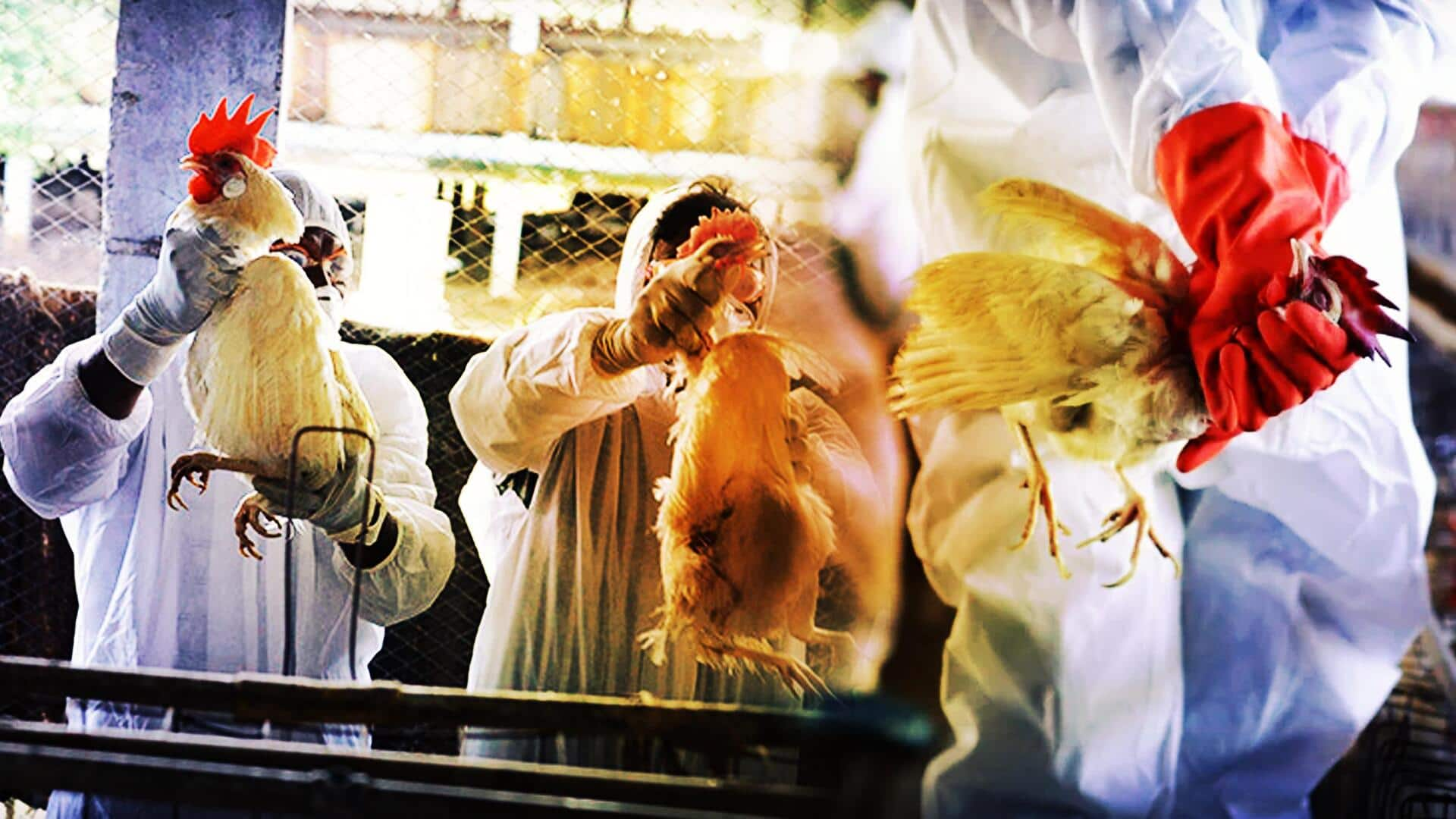
US's bird flu outbreak '100X worse' than Covid, warn experts
What's the story
The recent outbreak of bird flu, specifically Type A H5N1, in the United States has sparked concern among scientists. They warn that the impact of this outbreak could potentially exceed the devastation caused by the Covid pandemic by a hundredfold. The strain was first identified in 1959 and is known to cause severe, sometimes fatal infections in individuals who come into close contact with infected wild birds or poultry.
Case study
Texas case puts scientific community on high alert
Currently, the H5N1 strain does not spread easily among humans. However, a recent case of a man in Texas contracting the virus has heightened alert levels within the scientific community. This development raises alarm about the potential for this bird flu strain to mutate and become more transmissible among humans, which could lead to a significant increase in its impact.
Expert warning
Experts warn of potential severity of bird flu pandemic
Dr. Suresh Kuchipudi, a renowned bird flu researcher, warns that the virus is already globally present and infecting a range of mammals. He emphasizes the need for preparedness against this potential threat. John Fulton, another expert in the field, adds that if the virus mutates to infect humans while maintaining its high fatality rate, it could be "100 times worse than Covid."
Symptoms & Cases
Bird flu symptoms and recent cases in the U.S.
Bird flu symptoms resemble those of other flu strains, including coughing, body aches, and fever. In severe cases, it can lead to pneumonia. Since 2022, two human cases of bird flu have been reported in the US, with the most recent case involving a Texas farm worker who developed symptoms such as conjunctivitis.
Global impact
Global impact and warnings of potential bird flu pandemic
Between January 2003 and February this year, the World Health Organization (WHO) has documented 887 cases of human infection with H5N1 avian influenza, resulting in 462 deaths. The EU's Food Safety Agency (EFSA) has issued a warning about the potential for a large-scale bird flu pandemic if the virus becomes transmissible between people, due to our lack of immunity against it.
Preparedness & Response
U.S. preparedness and pharmaceutical companies' response
The US is equipped with a stockpile of bird flu vaccines that match the circulating strain, and antivirals that could be used to treat human infections. The Centers for Disease Control and Prevention (CDC) also has "seed" strains of the virus for manufacturers to produce more vaccines. Pharmaceutical companies like Sanofi and GlaxoSmithKline are closely monitoring the situation, ready to develop avian flu vaccines if necessary.
Precautions
Recommended precautions against H5N1 bird flu
To protect against H5N1 flu, individuals are advised to avoid contact with sick or dead birds and their droppings, thoroughly cook poultry products, and maintain good hand hygiene. Use of personal protective equipment when handling sick or dead birds is recommended. Individuals should also avoid touching eyes, nose, and mouth with unwashed hands, adhere to proper respiratory hygiene, stay updated about H5N1 outbreaks, and seek medical attention if they experience symptoms of respiratory illness after potential exposure to the virus.